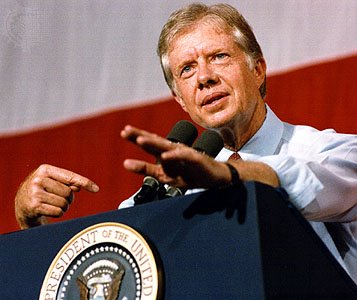ROMA / Le prime foto...









(fotos:Rui Ferreira)
Mais coisas * Estórias * Fotografias * Viagens * Colunistas * Correio
 Una madeja judicial envuelve a Pinochet a sus 90 años
Una madeja judicial envuelve a Pinochet a sus 90 años Carter said the Bush administration spoke of mushroom clouds, weapons of mass destruction and the threat of thousands of Americans dying to garner support for the war. No weapons of mass destruction have been found in Iraq.
Carter said the Bush administration spoke of mushroom clouds, weapons of mass destruction and the threat of thousands of Americans dying to garner support for the war. No weapons of mass destruction have been found in Iraq. Muchas de las personas que por estas horas desfilan por Mar del Plata protestando por la presencia de Bush y la Cumbre de las Américas tienen razón en sus argumentos. Por siglos la región ha sido miserablemente explotada por todo el mundo, a los indígenas no les han prestado atención, a los pobres no les han dado nada, a las mujeres no dejan de violarlas y a los niños les niegan la leche. En fin, que a los pueblos no los dejan vivir.
Muchas de las personas que por estas horas desfilan por Mar del Plata protestando por la presencia de Bush y la Cumbre de las Américas tienen razón en sus argumentos. Por siglos la región ha sido miserablemente explotada por todo el mundo, a los indígenas no les han prestado atención, a los pobres no les han dado nada, a las mujeres no dejan de violarlas y a los niños les niegan la leche. En fin, que a los pueblos no los dejan vivir. drogas lo hagan héroe nacional y que además ande paseando al lado de un militar golpista, en una manifestación donde se glorifica a Osama Bin Laden. Aunque, pensándolo bien, tiene su razón de ser. Uno promueve el tráfico y el otro lo consume. Es caso para decir, que Dios los cría y el diablo los junta. Es por cosas como esta que las luchas de los pueblos pierden credibilidad. Es triste que el futuro de Latinoamérica sea un drogadicto y un militar golpista. [RF]
drogas lo hagan héroe nacional y que además ande paseando al lado de un militar golpista, en una manifestación donde se glorifica a Osama Bin Laden. Aunque, pensándolo bien, tiene su razón de ser. Uno promueve el tráfico y el otro lo consume. Es caso para decir, que Dios los cría y el diablo los junta. Es por cosas como esta que las luchas de los pueblos pierden credibilidad. Es triste que el futuro de Latinoamérica sea un drogadicto y un militar golpista. [RF]


Para que vejam que a gente também dá cartas lá fora. Hoje Portugal ganhou a Miss Playboy TV 2005. A imagem não mente. Chama-se Liliana Quiróz e tem 20 anos. Por sinal, o Brasil ficou em segundo lugar.
 Hoy a partir de las 9:15 a.m. se anunciaran varios despidos en Univisión, canal 23, con sede en Miami. Uno de esos despidos es el de Edmundo Garcia, curiosamente – o no – unas 4 semanas después que se fue a Nueva York, con el permiso de su empresa, a entrevistar al presidente del parlamento cubano, Ricardo Alarcón. Yo no creo en coincidencias porque sé que detrás de todo ello está la mano de un devoto de José Maria Escrivá. [RF]
Hoy a partir de las 9:15 a.m. se anunciaran varios despidos en Univisión, canal 23, con sede en Miami. Uno de esos despidos es el de Edmundo Garcia, curiosamente – o no – unas 4 semanas después que se fue a Nueva York, con el permiso de su empresa, a entrevistar al presidente del parlamento cubano, Ricardo Alarcón. Yo no creo en coincidencias porque sé que detrás de todo ello está la mano de un devoto de José Maria Escrivá. [RF]